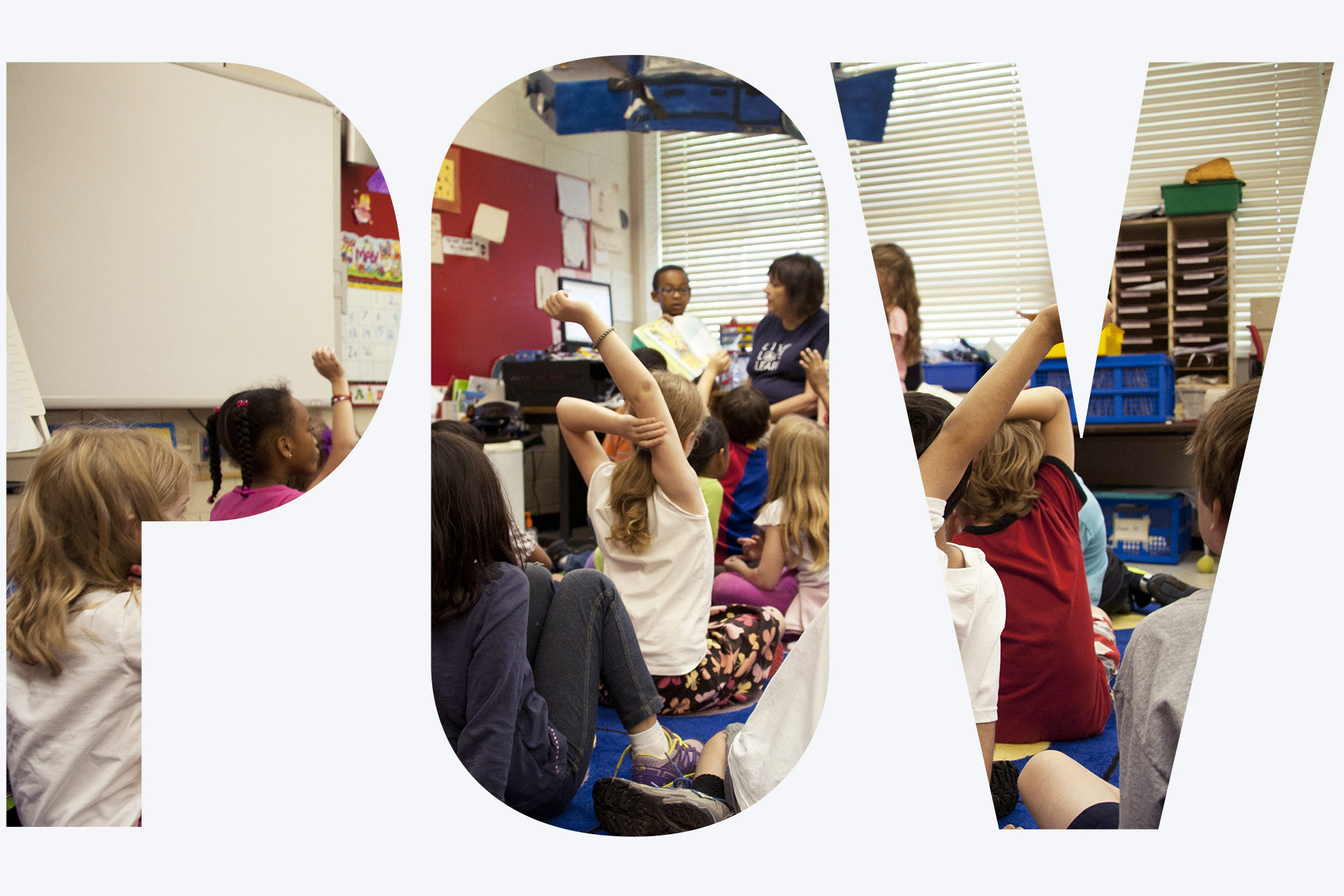POV: We Need to Focus on Children’s Rights as We Grapple with Reopening Childcare in Massachusetts

Photo courtesy of cdc/iStock
POV: We Need to Focus on Children’s Rights as We Grapple with Reopening Childcare in Massachusetts
Decisions must be grounded in the science of early childhood
Childcare providers across Massachusetts are struggling with impossible decisions. How can they meet new regulations for keeping children safe during the pandemic, while providing high-quality experiences for young children? Can they afford to reopen? Can early care providers stay safe while meeting the requirements? The critical role that childcare plays in society has never been more apparent. But as decisions get made about reopening guidelines and adult-child ratios, are we forgetting the rights of children and of those who care for them?
All young children, especially those experiencing adversity because of racism, economic and food insecurity, and other systemic injustices deserve access to excellent and equitable childcare. The UN Convention on the Rights of the Child and the Universal Declaration of Human Rights provide protections for children’s health, well-being, and education that we must keep front and center. We, members of the newly formed Faculty Alliance for Early Childhood Well-Being at Boston University, urge focusing on children’s rights as we grapple with reopening childcare.
Children have the right to health. This means that they and their caregivers should not be put at significant risk of contracting COVID-19. Although most cases in children have been mild, much remains unknown, including the long-term impact of infection on neurodevelopment. The right to health also means that children should not be exposed to excessive stress. Care environments that are unfamiliar because of COVID-19 restrictions will induce stress. Plans to reduce infection must be designed to minimize stress on children and caregivers—recent changes to the Massachusetts reopening guidance are a step in this direction. Children have a right to food and good nutrition. Childcare providers are an important source of healthy meals that many children need. Children have the right to protection. The social isolation induced by the pandemic exposes many children to domestic violence, abuse, or neglect at home. Childcare providers play an important role in protecting children living in adverse environments, and we need them in the lives of children. We cannot protect children’s rights without also lifting up the rights of early childhood providers and giving them concrete supports, like professional salaries and benefits.
Children have a right to education that, as the UN Convention states, “should teach them to understand their own rights, and to respect other people’s rights, cultures and differences.” Let’s seize this moment to revamp the early education system, not just due to COVID, but also in light of violence targeted toward Blacks. Recent events have made abundantly clear that Black children and families are at greater risk for health disparities, mental and physical, due to lack of access to healthcare and the racial toxic stress they face every day. Yet many small childcare centers, especially those serving low-income families or children of color, cannot afford to reopen. This could deepen inequities in access to high-quality childcare.
Our country has a history of underappreciating and underfunding early childhood education and care, especially for children who are marginalized. As a society, we must center the rights of children and reduce inequities. Numerous studies in economics, cognitive neuroscience, psychology, health, and education have shown that early childhood experiences are key determinants of children’s success. Early life experiences profoundly influence brain development and contribute to lifelong mental health. Adverse childhood experiences have deleterious effects on children’s social, emotional, and academic development. Promoting protective factors such as high-quality early care can decrease difficulties later in life. We applaud recent bills in Congress to support early education and care with a $50 billion to $100 billion investment—this is the level of support we need to transform early care and education in the United States.
The UN Convention concludes: “All children have all these rights, no matter who they are, where they live, what language they speak, what their religion is, what they think, what they look like, if they are a boy or girl, if they have a disability, if they are rich or poor, and no matter who their parents or families are or what their parents or families believe or do. No child should be treated unfairly for any reason.” Sadly, the United States is one of few countries that has not ratified this UN Convention, but nothing is stopping Massachusetts from leading by example and lifting up children’s rights. Please, let us not continue to make decisions that exacerbate inequities for young children, their families, and their childcare providers. Instead, let’s ground decisions in the science of early childhood. Everyone has the right to benefit from science, and science clearly shows that investing in young children, and those who care for them, is necessary to protect their human rights.
Megina Baker, a Wheelock College of Education & Human Development lecturer, can be reached at meginab@bu.edu. Felicity Crawford, a Wheelock clinical associate professor, can be reached at fcraw@bu.edu. Stephanie Curenton, a Wheelock associate professor, can be reached at curenton@bu.edu. Ellie Friedland, a Wheelock clinical associate professor, can be reached at elliefr@bu.edu. Ruth Paris, a School of Social Work associate professor, can be reached at rparis@bu.edu. Peter Rockers, a School of Public Health assistant professor, can be reached at prockers@bu.edu. All are members of the newly formed BU Faculty Alliance for Early Childhood Well-Being.
Comments & Discussion
Boston University moderates comments to facilitate an informed, substantive, civil conversation. Abusive, profane, self-promotional, misleading, incoherent or off-topic comments will be rejected. Moderators are staffed during regular business hours (EST) and can only accept comments written in English. Statistics or facts must include a citation or a link to the citation.